Jonathan Spyer: 'Russia and Iran's alliance is becoming a strategic partnership'
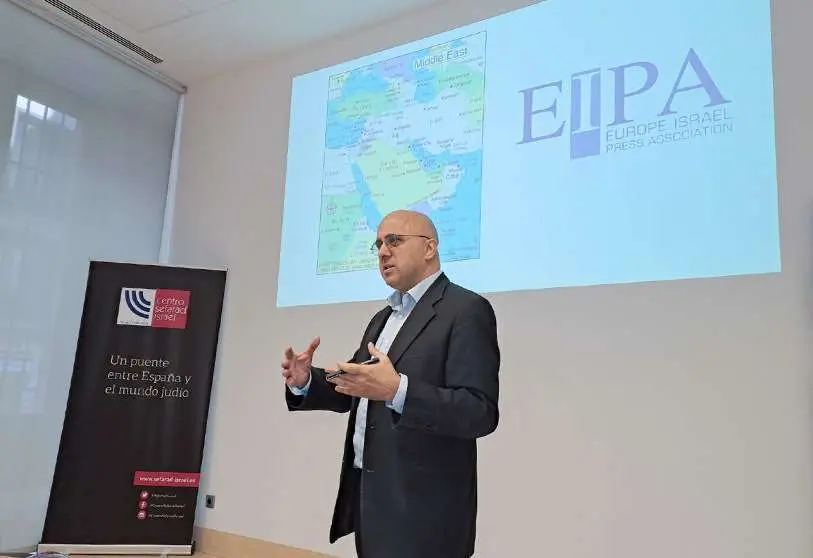
Despite the current war in Ukraine and the growing tensions between China and the United States, the Middle East continues to be a region with great weight on the international scene. For this reason, it is necessary to closely follow and analyse events in the region, as they have global consequences.
In order to address and examine the current situation in the Middle East, the Centro Sefarad-Israel in Madrid, together with the Europe Israel Press Association (EIPA) and the European Jewish Association (EJA), has organised a conference for journalists by Jonathan Spyer.
Under the title 'A New Geopolitical Landscape in the Middle East', the British-Israeli journalist and analyst explained the current situation in the region and the main regional blocs in confrontation.
? De la mano de @EJAssociation hoy hemos recibido a @jonathan_spyer quien ha analizado el papel de #Israel en Oriente Medio junto a varios periodistas. pic.twitter.com/sfzFIA5t1U
— Centro Sefarad-Israel (@SefaradIsrael) February 27, 2023
In order to analyse the present, it is necessary to look back and provide context to current events. "It is common to see the Middle East region as a place of instability and uninterrupted political strife. But this is, in some ways, a slightly simplistic reading," Spyer began. In this sense, the journalist alluded to the authoritarian regimes that preceded the Arab Spring.
These governments, despite failing in many areas, such as the economy, the development of civil societies or the defence and promotion of human rights, managed to establish themselves and remain in power, "the only thing that perhaps mattered to them", Spyer notes.
Another succesful #EJA-EIPAbriefing in Madrid, Spain ?? ? @jonathanspyer addressed audience by lecturing about the changing Middle-East, Iranian alies in the region and counter alliance. @EJAssociation pic.twitter.com/sa3oPAGDEe
— European Jewish Association (@EJAssociation) February 27, 2023
However, this picture changed dramatically with the advent of the Arab Spring protests, one of the most significant events in the region in recent years. Massive demonstrations in several Arab countries led to the overthrow of Ben Ali in Tunisia and the fall of Hosni Mubarak in Egypt, but were also the prelude to bloody civil wars in Syria and Yemen. "A wave of change has swept through the region," says Spyer.
But what consequences and changes can we now see more than a decade after the Arab Spring? Spyer points out, firstly, that, unfortunately, "more presentable forms of government have not arrived in the Arab world". In this sense, he qualifies the case of Tunisia, stressing that there were "some grounds for optimism".
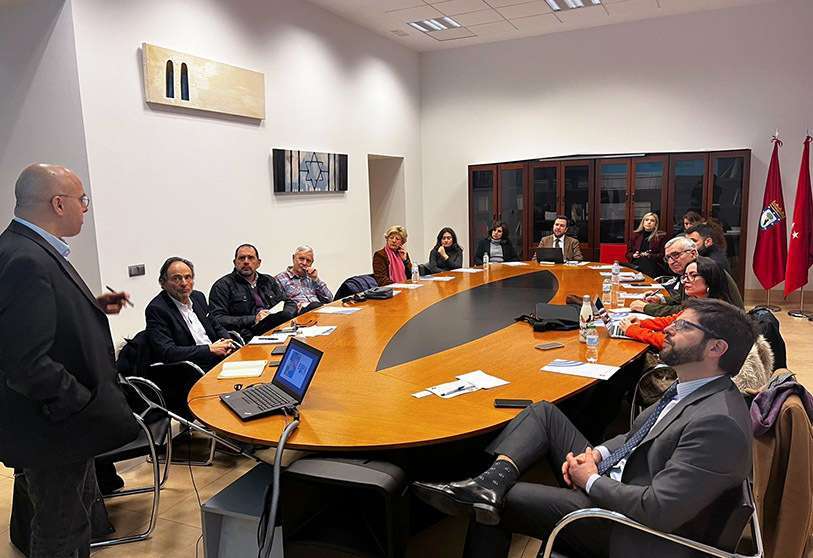
Another consequence is that in a large part of the region, where authoritarian regimes once ruled, there is now a great deal of fragmentation and a "partial or total collapse of political authority", i.e. there is no single entity in charge of or performing all the tasks that a government must manage. Spyer mentions Syria, Lebanon, Yemen, Libya or the Palestinian territories. "Where there used to be a strong and powerful regime, there is now a kind of succession contest that is mostly fought by organisations that can successfully combine political and military capabilities," he explains.
This is where foreign powers, the main pillars of these organisations, come in. In Syria, for example, Bashar al-Assad's government is backed by Iran and Russia, while the largely Kurdish militias in the northwest are backed by the US. There are also groups in the north that are supported by Turkey.
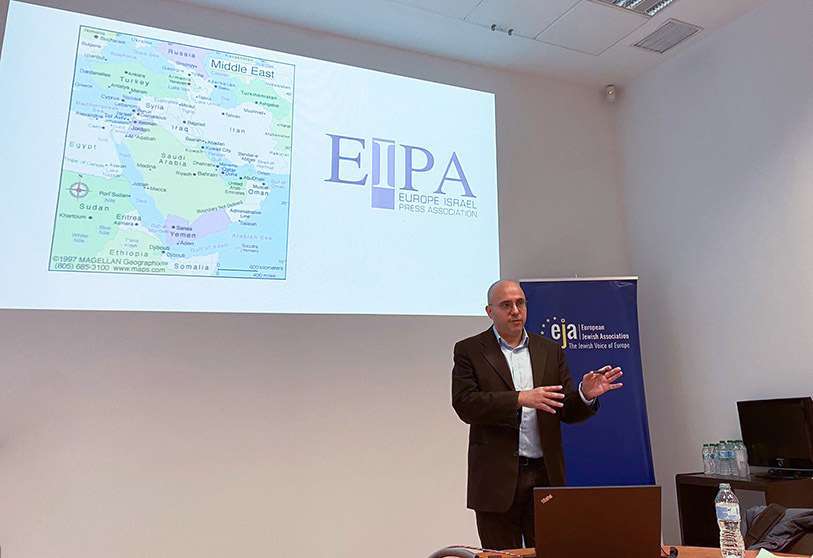
In addition to its presence in Syria, Iran also has influence in Lebanon through Hezbollah, in Iraq through paramilitary groups such as the Popular Mobilisation Units, in Yemen, where it supports the Houthis, and in the Palestinian territories through Hamas and Islamic Jihad. For this reason, the Islamic Republic of Iran is a key fundamental actor in the region. Tehran, together with its like-minded groups, represents 'the most cohesive alliance' within the region's blocs, though not necessarily the strongest.
To analyse Iran's role in different countries in the Middle East it is necessary to highlight the Islamic Revolutionary Guard, a key organisation for Tehran, not only in neighbouring countries, but also in Europe, for example, where it has organised the assassination of several opposition leaders. The Islamic Revolutionary Guard "is not a conventional military group, although it can perform conventional military tasks". Nor is it an intelligence organisation, "although it can perform related tasks". As Spyer points out, the reason Iran has such an organisation "goes back to the Iranian regime's perception of itself as revolutionary".
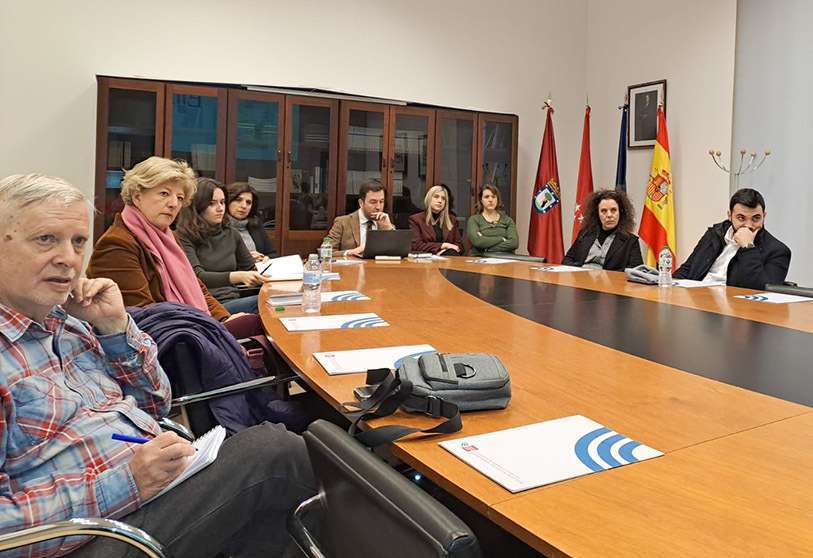
The Revolutionary Guard has gone so far as to create parallel armies in places like Syria, recruiting soldiers and training them. This allowed Damascus to hold its own against the rebels in the years before Russia became involved in the conflict. The rebels were backed by Gulf states such as the United Arab Emirates, Saudi Arabia, Turkey and the United States, but no real cohesion was achieved, which led to their failure in the war.
But what are Iran's objectives, and to what ends does it seek to influence unstable countries in the Middle East? First and foremost is Tehran's ambition to reach the Mediterranean Sea, a goal that Persian empires have sought to achieve since antiquity, as Spyer recalls. Tehran's other goals are to destroy the state of Israel and displace the wealthy Gulf states. "Iran seeks hegemony in the region in geographic and geostrategic terms," the analyst stresses.
Once the first regional alliance - Iran and its related groups - has been identified, we can establish a second bloc that includes Israel, Saudi Arabia, the United Arab Emirates, Bahrain and Egypt. Secondary actors such as Jordan or the Kurdish groups in north-western Syria can also be influenced here.
This alliance, unlike the Tehran-led one, does not have a common ideology. What they do share, however, is their rivalry with Iran and their strong ties to the US and the West. Likewise, within the Arab countries, they share a common confrontation with movements such as the Muslim Brotherhood.
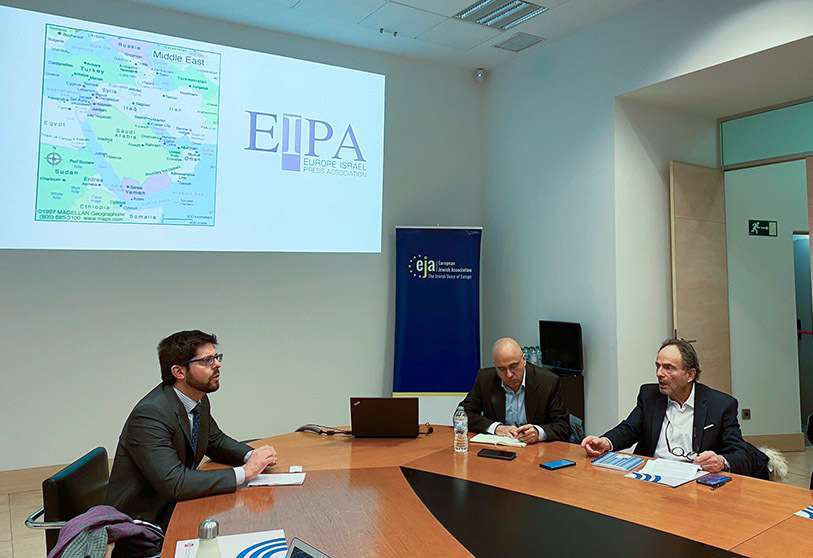
Within this alliance, the Abraham Accords are noteworthy, a key and historic event that has radically changed the regional landscape in different areas, such as trade, politics, economics and diplomacy.
The so-called 'Deal of the Century' has also given impetus to other initiatives such as the I2U2 group - made up of India, Israel, the UAE and the United States -, the Middle East Air Defence Alliance (MEAD) - launched by former Israeli Defence Minister Benny Gantz - and the Negev Forum.
Despite not being part of the Middle East, Russia's role in the region needs to be highlighted. Although the military ties between Tehran and Moscow are now well known, it is worth remembering that for years pro-Iranian militias have relied on Russian weapons.
Now, with Russia's invasion of Ukraine, the Iranian regime has supplied Russia with numerous drones that play an important role in attacking civilian infrastructure. "These drones are not very good, so they are not very useful against military infrastructure," Spyer stresses.
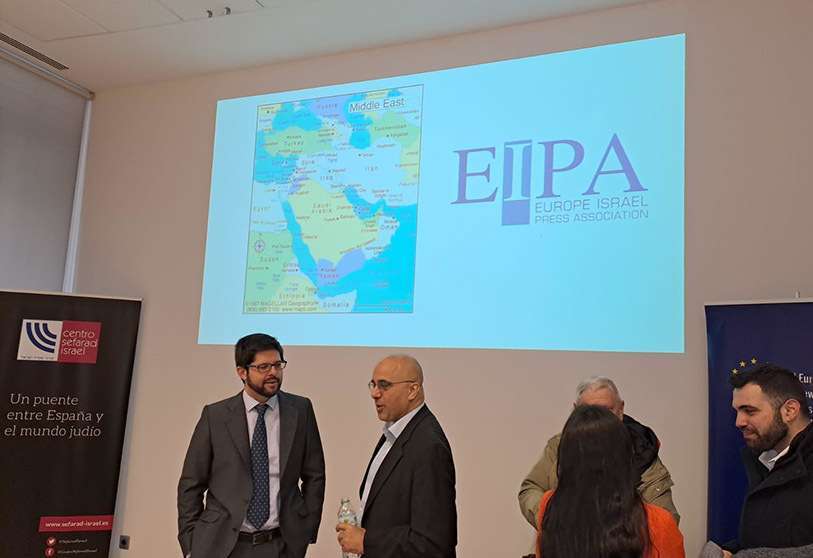
"The Russia-Iran alliance is no longer a marriage of convenience, it is emerging and solidifying into a strategic partnership," he notes. In addition to Iran, the US fears that China will begin to support Moscow militarily during the war.
The Asian giant, like Russia, is strengthening its ties with Iran. Evidence of this is a 25-year bilateral strategic cooperation agreement signed in 2021. "We have the emerging shadow of a kind of powerful global counter-Western alliance," concludes Spyer.








